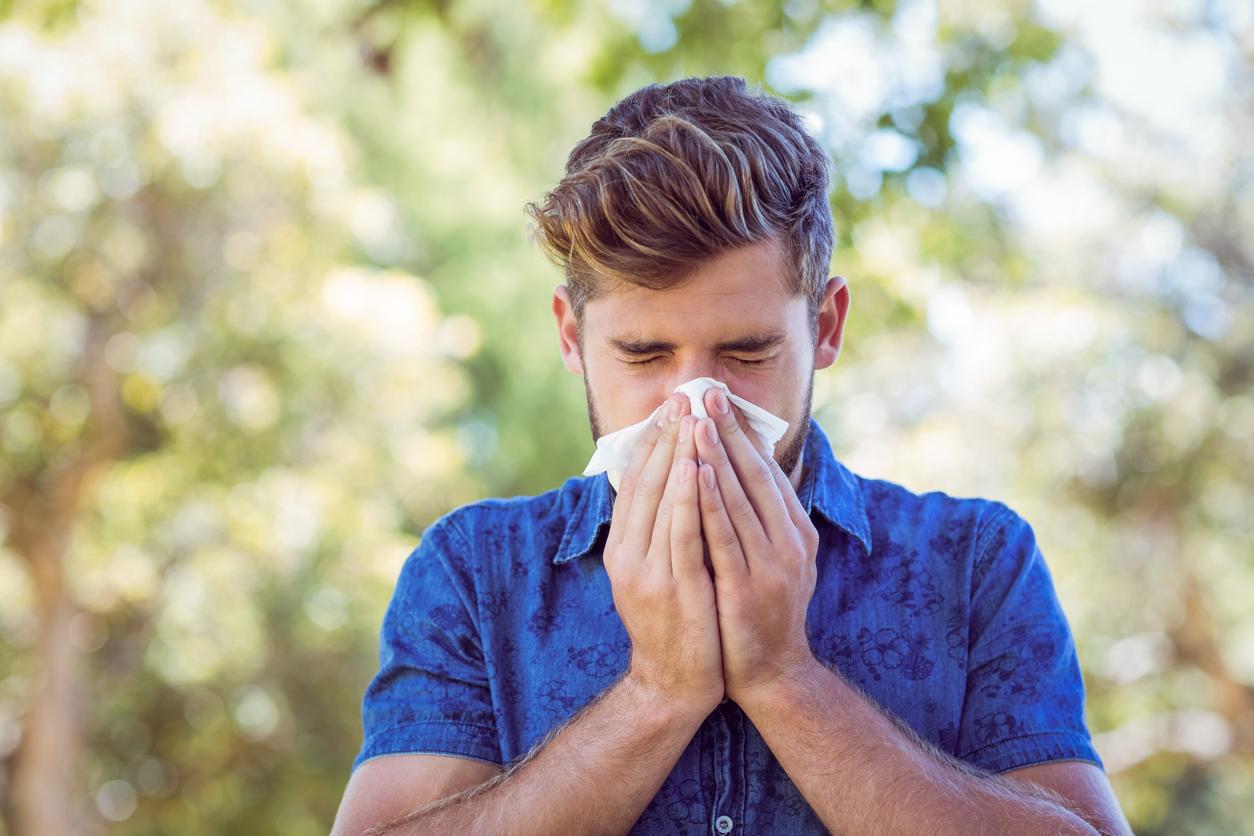One in five hay fever sufferers take time off work because of their allergy, study finds
A third admit lying to their boss about their reason for absence

Your support helps us to tell the story
From reproductive rights to climate change to Big Tech, The Independent is on the ground when the story is developing. Whether it's investigating the financials of Elon Musk's pro-Trump PAC or producing our latest documentary, 'The A Word', which shines a light on the American women fighting for reproductive rights, we know how important it is to parse out the facts from the messaging.
At such a critical moment in US history, we need reporters on the ground. Your donation allows us to keep sending journalists to speak to both sides of the story.
The Independent is trusted by Americans across the entire political spectrum. And unlike many other quality news outlets, we choose not to lock Americans out of our reporting and analysis with paywalls. We believe quality journalism should be available to everyone, paid for by those who can afford it.
Your support makes all the difference.One in five hay fever sufferers have taken time off work due to their allergy, a study has found.
The itchy eyes, runny noses and sneezing fits that often come with the allergy leave almost four in 10 struggling to do their job.
As a result, 19 per cent of the 1,660 hay fever sufferers polled have ended up calling in sick.
But a third of those confessed to not being completely honest with their employer about why they had taken time off, with the majority saying their boss would not see hay fever as an acceptable excuse.
The research was commissioned by Well Pharmacy ahead of Allergy Awareness Week which takes place from 23 to 29 April.
Pharmacist Jane Devenish said: “Hay fever affects up to 30 per cent of adults in the UK and 40 per cent of children, according to Allergy UK.

“Symptoms can be severe, including headaches, blocked sinuses, shortness of breath, watering red itchy eyes, and even difficulty hearing, which can have a real impact on quality of life.”
Researchers revealed how pollen allergies are impacting the working day, with a third of sufferers often left feeling too worn out to concentrate.
And 44 per cent find themselves unable to stay focused because they are constantly interrupting their day to blow their nose or sneeze.
One fifth are more irritable with colleagues and 15 per cent reckon their ability is stifled as avoiding fresh air, which could aggravate their symptoms, means they spend all day indoors.
But almost half of sufferers agreed those around them who don’t have pollen allergies are not very understanding of their symptoms and the effect it has on them.
It's not just work where hay fever sufferers are left struggling though, as 84 per cent said their pollen allergy impacts their quality of life, with an equal number struggling to get a quality night’s sleep when symptoms kick in.
Nearly three in 10 find it difficult to keep a tidy home during the hay fever season and more than one third are unable to keep up with exercise as a result of their allergy.
The research also found 13 per cent struggle to keep up a happy relationship with their partner and seven per cent admitted their hay fever symptoms make them feel less romantic.
More than half say their symptoms leave them feeling tired and run down, with one fifth going as far as to say they have times where they feel too uncomfortable to do anything.
And nearly one quarter are feel upset or down as a result of their allergies.
Worryingly for sufferers, symptoms seem to be lasting longer than ever, with almost a quarter experiencing the itchy eyes and sneezing for six months or more each year.
A third also believe their symptoms have started earlier than usual over the last few years.
In a bid to lead a more normal life, 85 per cent try to manage their hay fever misery with antihistamines, with 44 per cent using a nasal spray and 31 per cent turning to eye drops.
Yet, 84 per cent admitted they still experience hay fever symptoms even when taking their medication.
As a result, two thirds will take extra precautions such as closing all the windows and doors, not cleaning the house and even wearing a dust mask.
Jane Devenish added: “Only 33 per cent of people surveyed had ever seen a pharmacist for treatment.
“I would urge the 84 per cent who still experience symptoms, despite their treatment, to pop in to see their local pharmacist for a consultation about the best treatments to help them manage their symptoms better.
“As well as for advice on practical tips about how to minimise symptoms, such as washing hands frequently, keeping doors and windows closed when pollen counts are high, and avoiding alcohol.”
SWNS
Join our commenting forum
Join thought-provoking conversations, follow other Independent readers and see their replies
Comments